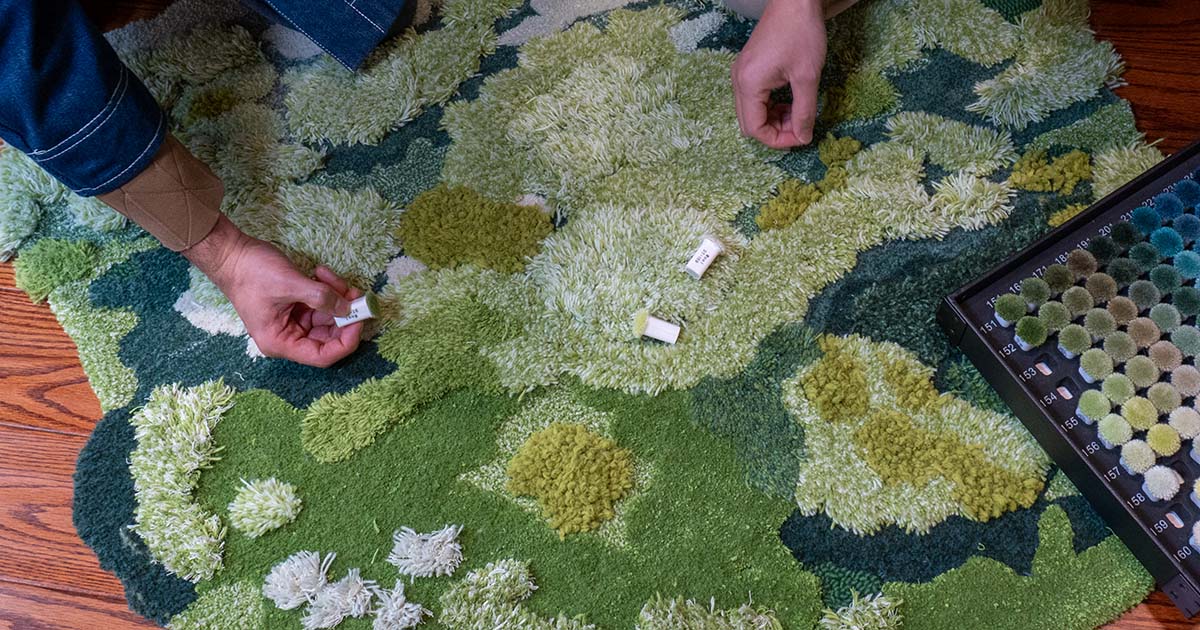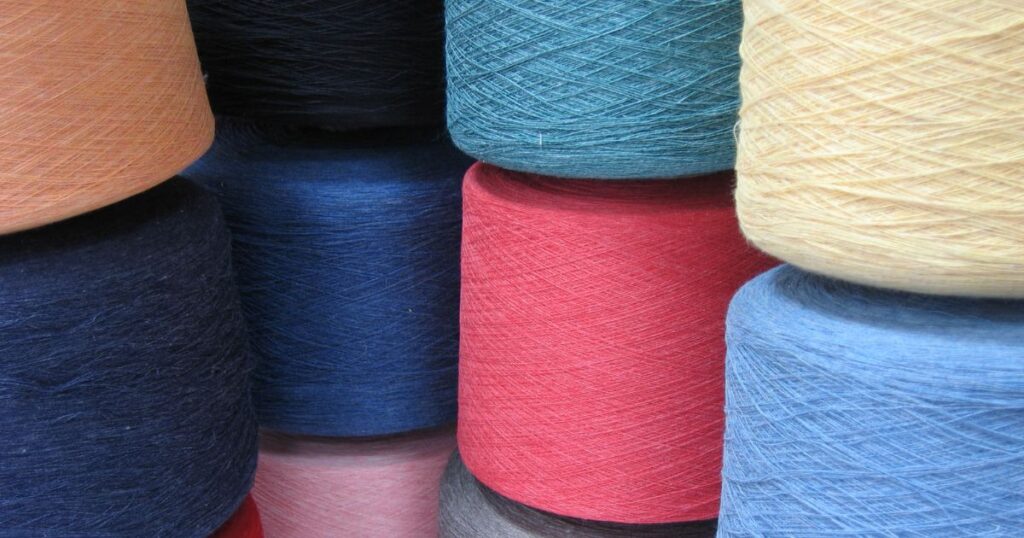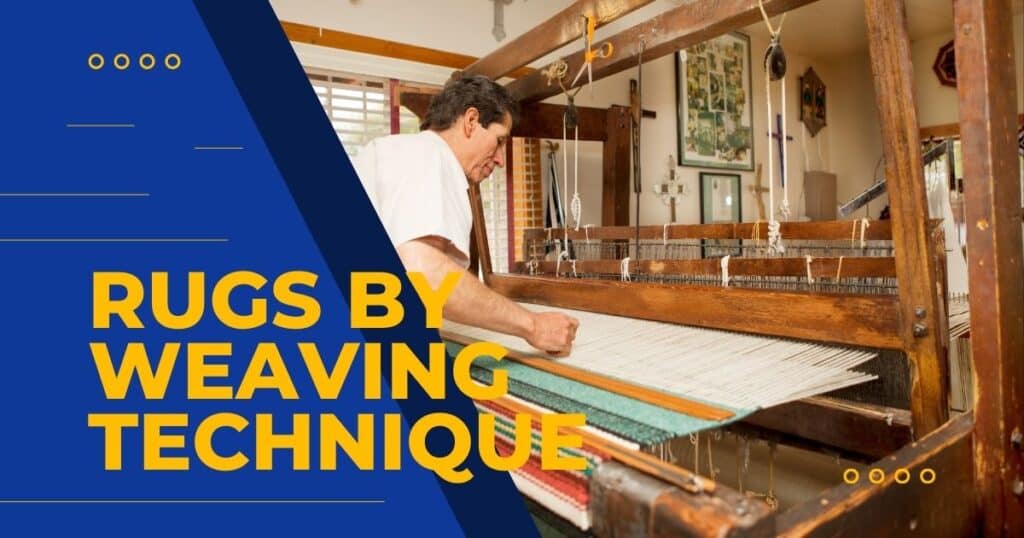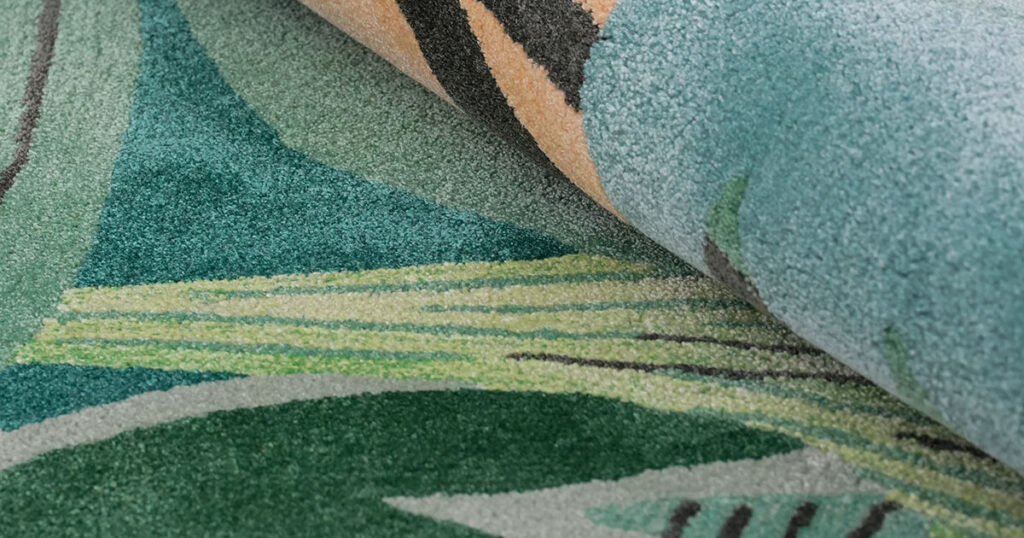When ordering a custom tufted rug, one of the trickiest aspects is getting the colors just right.
Colors can look different on a screen versus in person.
And everyone wants their rug to match their vision.
This friendly guide will walk you through proper color management from two perspectives:
- what rug makers do to ensure color accuracy
- And what you as a buyer can do to understand and set realistic expectations.
Let’s get started.
Our Color Accuracy Commitments
Professional Color Management Systems
As a professional tufted rug makers, we take several professional steps to make sure the colors you get are as close as possible to what you wanted.
Calibrating monitors
When rug suppliers send you digital previews, design mock-ups, or photos of yarn samples, you want those images to be as true-to-life as possible.
Our team uses a SpyderX calibrator to adjust our computer monitors.
- That means adjusting the screen’s color settings to a known standard.
- A calibrated setup ensures that what we see (and then show you) is what you’ll get.
This gives both us and you confidence that the digital color matches the real-world color as closely as technology allows
Color correction
We also use the Spyder Checkr when photographing important items like our color palettes.
This simple color calibration tool ensures we can display true colors during post-processing of images.
By calibrating both our monitors and our photography workflow, we create a consistent color pipeline from concept to final product images.
Comprehensive Yarn Color Systems
Rather than relying on general color descriptions, we maintain extensive color palettes (color poms) for all our yarn types:
- New Zealand wool
- Acrylic yarn
- Rayon
- Bamboo silk
Instead of just naming a color “sky blue,” we will reference a specific code or swatch.
This way, both of our sides are talking about the exact shade.
Physical color guides are key – using a real color swatch is far more reliable than a computer screen, since every monitor can display colors differently
Physical Yarn Samples
We offer physical yarn samples during the initial consultation phase.
- It can be a small tufted piece or yarn swatches in the chosen colors
- For a custom tufted rug with a total overall size over 10 square meters, we can offer a small free sample approximately 50x50cm
These tangible samples let you see and feel the actual colors under your own lighting conditions before production begins.
This step significantly reduces color discrepancies and ensures you approve the exact materials we’ll use.
Consistent Yarn Sourcing
The rug’s yarn needs to be dyed in the right color, and consistency is crucial.
We partner with the most reliable yarn dyeing service providers with strict quality control.
Rather than working with those who take cost as their priority.
This minimizes batch-to-batch color variations that can occur with natural fibers and dyes.
Multi-Stage Quality Checks
Attaching yarn samples
We attach a small bunch of yarn to each production document, so our tufting workers know exactly which yarn color is correct.
This physical reference eliminates any confusion during production.
Ensure consistency between the approved sample and the final rug.
Check before shipping
Before shipping, we conduct thorough quality checks specifically for color accuracy.
We inspect rugs under different lighting conditions to ensure the colors appear consistent and match the approved samples.
Understanding Color Variables
Digital Display Limitations
The colors you see on your phone, tablet, or computer screen can vary significantly from the actual yarn colors. Factors affecting how colors appear on screens include:
- Screen brightness settings
- Display type (OLED, LCD, etc.)
- Night mode or blue light filters
- Screen age and quality
Even with our calibrated monitors, the same image may look different on your device.
This is why physical samples are so valuable.
Lighting Effects on Color Perception
One of the most common issues customers face is that rugs look different under their home lighting than they did in photos. This happens because:
- Natural daylight shows colors differently than artificial lighting
- Warm (yellowish) bulbs make colors appear warmer
- Cool (bluish) bulbs bring out cooler tones
- The intensity of light affects color saturation
Consider testing your yarn samples at different times of day and under various lighting conditions in the room where the rug will be placed.
Environmental Context
Colors don’t exist in isolation—they’re influenced by their surroundings. Your rug’s appearance will be affected by:
- Wall colors (which can reflect onto the rug)
- Flooring materials
- Nearby furniture colors
- Window positions and natural light sources
A rug that looks perfect in our studio might appear slightly different in your uniquely colored and lit space.
Material Characteristics
Different yarn types reflect light differently, affecting how colors appear:
- Wool has a natural matte finish with slight color variations
- Bamboo silk has a sheen that changes appearance from different angles
- Acrylic yarns tend to have more consistent color but different light reflection properties
The pile height and direction also influence how light interacts with the rug, creating subtle color variations when viewed from different angles.
Dye Lot Variations
While we work with the most consistent suppliers, natural fibers like wool can show slight variations between dye lots.
This is an inherent characteristic of natural materials that adds to their authentic beauty.
But it also means exact color matching can be challenging.
Best Practices for Color Success
For Makers:
- Maintain calibrated displays and consistent lighting for photography
- Provide physical samples whenever possible
- Document approved colors with standardized references
- Check colors under multiple lighting conditions
- Communicate openly about any potential limitations
For Buyers:
- Request physical yarn samples before finalizing your order
- View samples in the actual room where the rug will be placed
- Check samples under both daytime and evening lighting
- Consider how your existing decor might influence color perception
- Understand that slight variations are part of the natural character of handcrafted items
Finding Color Harmony
Color management is a partnership between makers and buyers. By understanding the technical limitations and taking practical steps to verify colors before production, we can work together to ensure your custom tufted rug brings the perfect color harmony to your space.
When designing your custom rug, communicate any specific color concerns early in the process. The more information we have about your expectations and environment, the better we can match your vision and create a rug you’ll love for years to come.







